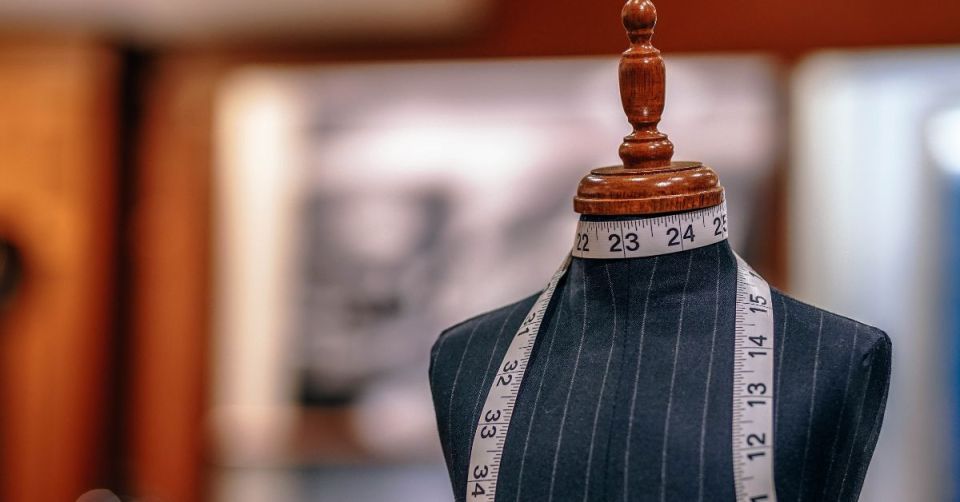The Impact of AI on Careers in the Fashion Industry

Artificial Intelligence (AI) is revolutionising industries across the globe, and fashion is no exception. From design and production to marketing and retail, AI is reshaping how fashion professionals work, opening up new opportunities and transforming traditional roles. In this blog, we’ll explore how AI is impacting various careers in the fashion industry and what this means for current and aspiring fashion professionals.
AI in Fashion Design
Traditionally, fashion design has been a highly creative process driven by intuition and artistic vision. However, AI is now playing a significant role in augmenting this creativity. AI-powered design tools can analyse vast amounts of data to predict trends, suggest color palettes, and even create new designs. This technology allows designers to experiment with new ideas quickly and efficiently.
For fashion designers, this means embracing AI as a collaborative tool. Instead of seeing AI as a threat to creativity, designers can use it to enhance their work, streamline the design process, and stay ahead of trends. The integration of AI can lead to more innovative and personalised fashion collections, ultimately benefiting both designers and consumers.
Revolutionising Retail and Customer Experience
AI is dramatically transforming the retail experience , impacting roles from store managers to customer service representatives. AI-driven analytics can provide retailers with deep insights into customer behavior, preferences, and purchasing patterns. This information helps in creating more personalised shopping experiences, both online and offline. In 2023, established brand Tommy Hilfiger launched the first mobile game to use generative AI that enhances 3D looks - meaning the graphics are a step up from what’s currently on the market. It allows customers to visualise products more accurately, helping them make more informed purchasing decisions and ultimately boosting sales!
For retail professionals, this shift means adapting to new technologies and leveraging AI to improve customer satisfaction. Store managers can use AI to optimise inventory, manage stock levels, and forecast demand. Customer service representatives can rely on AI chatbots to handle routine inquiries, allowing them to focus on more complex customer needs.
Enhancing Marketing Strategies
In the world of fashion marketing, AI is a game-changer. AI algorithms can analyse consumer data to identify target audiences, predict purchasing behavior, and optimise marketing campaigns. This allows marketers to create more effective and personalised advertising strategies.
For fashion marketers, understanding and utilising AI tools is becoming essential. Skills in data analysis, AI-driven content creation, and campaign optimisation are increasingly valuable. By embracing AI, marketers can enhance their strategies, reach their target audiences more effectively, and ultimately drive higher sales and brand loyalty.
Streamlining Supply Chain Management
The supply chain is another area where AI is making a significant impact. AI can optimise production schedules, manage logistics, and reduce waste. It can also predict potential disruptions and suggest alternative solutions, ensuring a smoother and more efficient supply chain.
For supply chain managers, this means utilising AI to improve operational efficiency and sustainability. By integrating AI into supply chain processes, managers can reduce costs, enhance productivity, and minimise the environmental impact of fashion production.
New Career Opportunities
As AI continues to integrate into the fashion industry, new career opportunities are emerging. Roles such as AI specialists, data analysts, and tech-savvy designers are becoming more prominent. These positions require a blend of fashion expertise and technical skills, offering a unique and exciting career path for those interested in both technology and fashion.
For aspiring fashion professionals, this means staying updated with the latest technological advancements and acquiring skills that bridge the gap between fashion and AI. Educational programs and courses focusing on AI in fashion are increasingly available, providing the knowledge and tools needed to thrive in this evolving industry.
Adapting to Change
The integration of AI in the fashion industry is inevitable, and adapting to this change is crucial for career growth. Continuous learning and flexibility are key. Professionals must stay informed about AI advancements and be open to adopting new tools and methodologies.
Networking with industry peers, attending workshops, and participating in professional development opportunities can help fashion professionals stay ahead of the curve. Embracing AI not only enhances career prospects but also contributes to the overall progress and innovation within the fashion industry.
AI is reshaping the fashion industry in profound ways, transforming traditional roles and creating new opportunities. From design and retail to marketing and supply chain management, AI is enhancing efficiency, creativity, and customer satisfaction. For fashion professionals, embracing AI and adapting to technological advancements is essential for career growth and success. As AI continues to evolve, it will undoubtedly unlock even more potential within the dynamic world of fashion.
Take a look at more ways the fashion industry is evolving in our blog!


